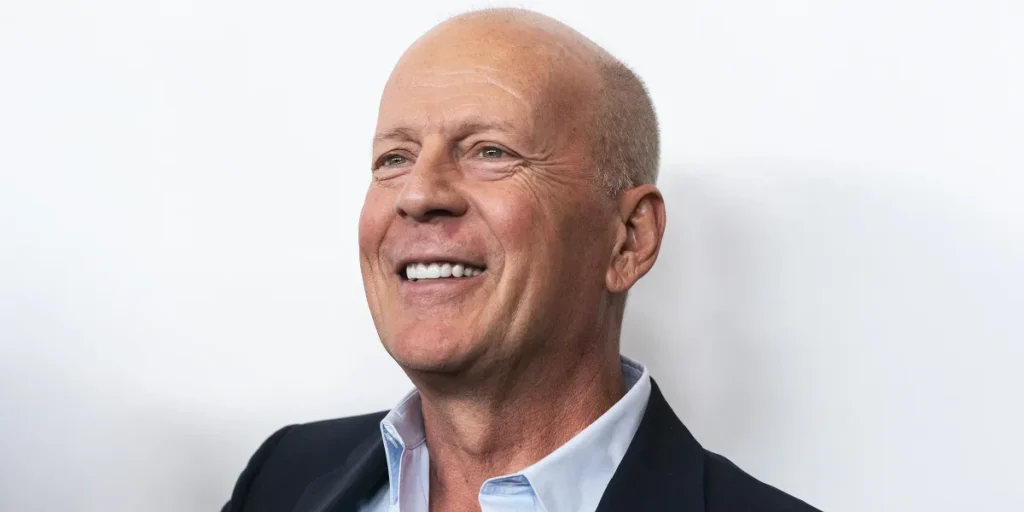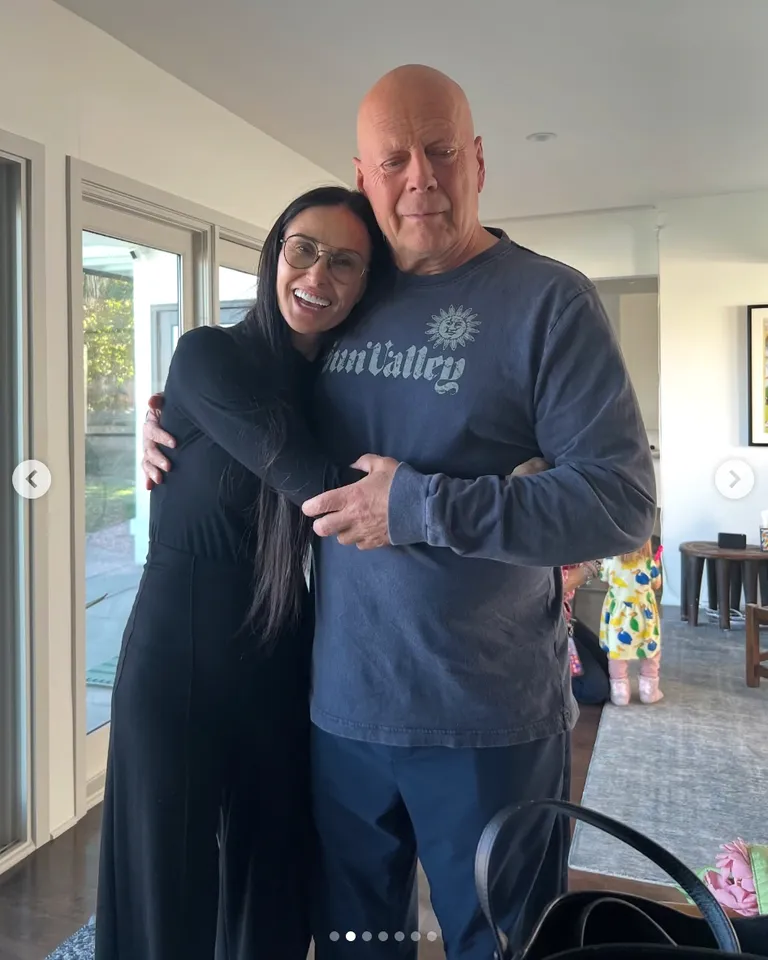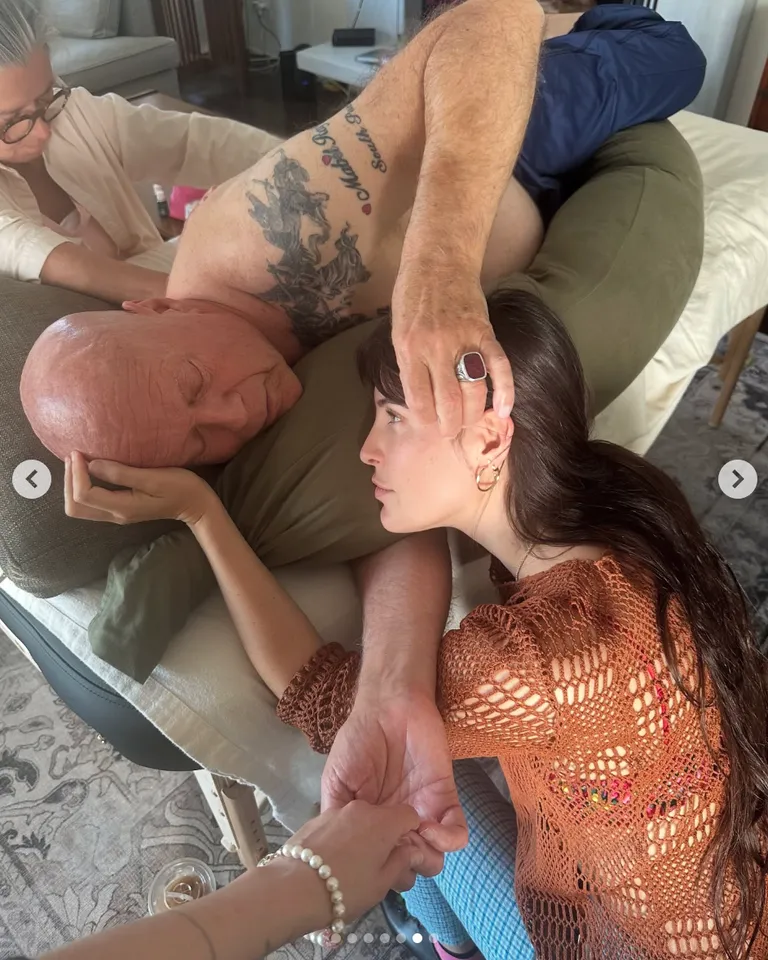Bruce Willis turns 70 surrounded by love—but heartbreaking new images spark medical concern as doctors weigh in on devastating dementia battle.

He was once the unstoppable force behind “Die Hard”’s gritty hero John McClane—but now, Bruce Willis, the Hollywood icon, is locked in a real-life fight he never scripted: a harrowing battle with frontotemporal dementia (FTD).

While the world celebrated his milestone 70th birthday with heartfelt posts and glowing tributes, eagle-eyed doctors have raised the alarm over troubling signs they spotted in newly shared family photos.
The touching celebration—led by ex-wife Demi Moore and wife Emma Heming Willis—offered fans a rare glimpse of the beloved star. But behind the smiles and hugs, experts saw a different story unfolding.
On March 19, 2025, Demi Moore took to Instagram to post a series of images from Bruce’s birthday celebration, writing: “Happy birthday, BW! We love you ♥️.”
The photos featured Bruce Willis, Demi, and their daughters—Rumer, Tallulah, and Scout LaRue Willis—gathered in a bittersweet show of support. One day later, Moore shared another tender update captioned: “Quality time with our BW… Who was feeling the love! Keep it pouring in! ♥️”
Among the images were Bruce being kissed lovingly on the cheek by Emma Heming and holding his adorable granddaughter in a moment that seemed to freeze time. But according to neurologists, time may not be on Bruce’s side.
Doctors Scrutinize Photos for Signs of FTD
Though none of the doctors had personally examined the actor, several physicians weighed in based on public images—and what they saw was deeply concerning.
Physicians noted that Bruce displayed a “masked expression”—a lack of emotional response often associated with dementia—and appeared to have “reduced facial emotion.”

Dr. W. Chris Winter, a Virginia-based neurologist, said: “He appears to have a bit of a masked face that has a little less expression. He looks good, and it is good to see him surrounded by his family, but he is kind of frozen a little bit.”
The doctor also shared his own personal experience:
“I had a family member with this condition, and all the pictures that we took with him he too was looking off to the side. He wasn’t engaged in the photo-taking process, so he was just a little bit more disconnected.”